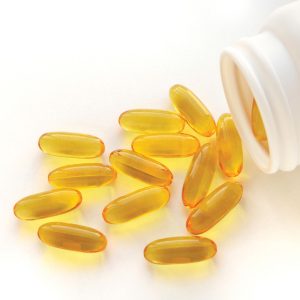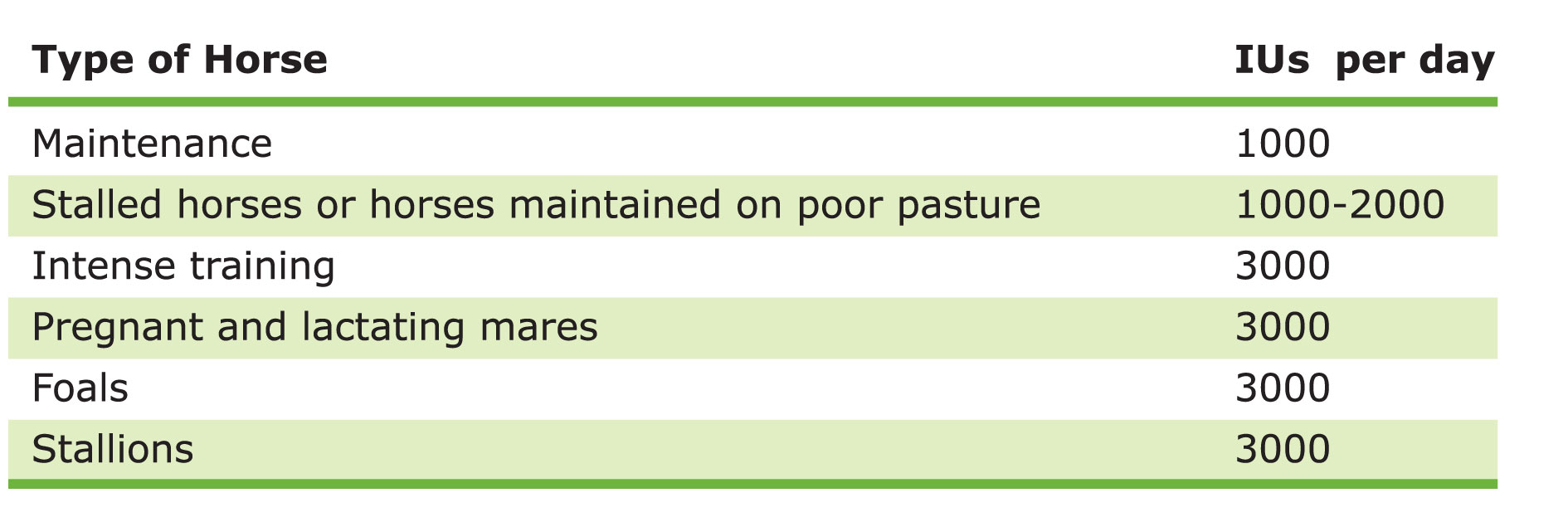
The Vitamin E Controversy
One human study showed that high doses of vitamin E might be risky; does this mean our horses are also at risk?
What you need to know:
Equine nutritionists and veterinarians feel that vitamin E can be beneficial to horses under certain conditions. Understanding why vitamin E is needed, when it is important to supplement vitamin E, and how to determine the correct supplementation level will protect your horse from both over- and under-supplementation. Equine nutritionists and veterinarians all agree that natural vitamin E (d-alpha-tocopherol) is the source of choice when supplementation is needed.
What do equine experts say about the human research?
Carey A. Williams, PhD (in equine nutrition), equine extension specialist and assistant professor at Rutgers University, feels we should not use the human study done at Johns Hopkins University to predict what might happen in the horse.
Sarah Ralston, VMD, PhD, Dipl. ACVN, and associate professor at Rutgers University, agrees. A single human study should not cause horse owners to become alarmed. There have been other long-term human studies that show vitamin E to be beneficial.
Multiple studies in universities across the country have been performed on horses by leading equine nutritionists and veterinarians showing the benefit of vitamin E supplementation. This is especially true for horses prone to muscle and neurological problems.
Vitamin E is known as an antioxidant. It protects cells from the harmful effects of oxidation. It plays a functional role in the reproductive, muscular, circulatory, nervous, and immune systems of the horse. Fresh green grass is the best source of vitamin E for horses.
Which horses are at risk for deficiencies?
- Horses with limited or no access to grazing on fresh green grass
- Horses grazing on winter pasture
- Horses eating insufficient amounts of fortified grains or grains not fortified with natural vitamin E
- Horses requiring nutrition above maintenance levels, such as exercising horses, breeding mares, stallions and growing horses, regardless of the amount of green grass consumed
How do I know if my horse is deficient?
Consult with your veterinarian to help you review your horse’s diet, identify symptoms of deficiencies, and run a blood test to determine if a deficiency exists.
Source affects absorption levels: synthetic vs. natural vitamin E:
Fresh green grass is your horse’s best source of vitamin E. The level of vitamin E in hay drops 70% within a week of being cut. Cereal grains are very low in vitamin E. Additional processing can also negatively affect vitamin E content.
Synthetic vitamin E (dl-alpha-tocopherol) is petroleum-based and is not absorbed well by your horse.
Natural vitamin E (d-alpha-tocopherol) is plant-based and is 2 to 3 times more available to your horse than synthetic vitamin E.
When choosing a source of supplemental vitamin E, look for the “d-alpha-tocopherol” notation on the label to ensure you are getting the natural, plant-based form of the vitamin.
What are safe levels of supplementation for horses?

Doses above 5,000 IU per day should be administered only with veterinarian approval.


